Essential Reads
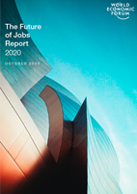
WEF The Future of Jobs Report 2020
The COVID-19 pandemic-induced lockdowns and related global recession of 2020 have created a highly uncertain outlook for the labour market and accelerated the arrival of the future of work. The Future of Jobs Report 2020 aims to shed light on: 1) the pandemic-related disruptions thus far in 2020, contextualized within a longer history of economic cycles, and 2) the expected outlook for technology adoption jobs and skills in the next five years. Despite the currently high degree of uncertainty, the report uses a unique combination of qualitative and quantitative intelligence to expand the knowledge base about the future of jobs and skills. It aggregates the views of business leaders—chief executives, chief strategy officers and chief human resources officers–on the frontlines of decision-making regarding human capital with the latest data from public and private sources to create a clearer picture of both the current situation and the future outlook for jobs and skills. The report also provides in-depth information for 15 industry sectors and 26 advanced and emerging countries.
Download PDF:
WEF The Future of Jobs Report 2020
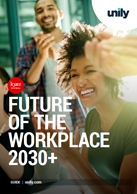
Unity Future of the Workplace 2030+
The future of work will be defined by personalised solutions, wellbeing and a focus on culture and inclusivity. Workplace learning will be as essential,and potentially also as natural, as breathing. Technology will augment people and organisations alike to open up pathways to improve employee experience and engagement – leading to greater productivity, creativity and innovation. Work is already being untied from space and time and, while this freedom is liberating and empowering, the future challenge is to create social cohesion and engagement for an increasingly liquid and distributed workforce. New organisational models require autonomy and flat management structures underpinned by purposeandvalues-driven leadership. There will be lessons to learn and barriers to overcome in order to achieve the meaningful workplace of the future we want to see – one that delivers value for organisations, individuals and society alike.
Download PDF:
Unity Future of the Workplace 2030+
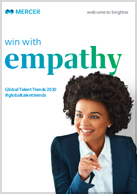
Mercer Global Talent Trends 2020
Mercer’s 2020 Global Talent Trends Study reveals that current realities and unresolved debates weigh us down, even as we see a future full of opportunity in this decade. An opportunity which, for now, seems to be halted by Covid-19…
As we enter an age of uncertainty, conversations about our collective future—and its impact on our health, wealth and well-being—dominate the airwaves. What technologies have we yet to meet, but soon won’t be able to live without? Will personalized medicine usher in an unprecedented period of young-old age? How equipped are we to embrace permanent remote working? What are we doing to improve health and wealth outcomes for those impacted by the Covid-19 crisis?
Download PDF:
Mercer Global Talent Trends 2020
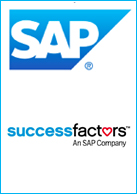
SAP Success Factors Workforce Report 2020
Preparing for the 2020 workforce is critical to business strategy, growth, and performance. To understand the challenges and opportunities, Oxford Economics and SAP surveyed over 2,700 executives and more than 2,700 employees in 27 countries during the second quarter of 2014.
Download PDF:
SAP Success Factors Workforce Report 2020
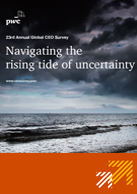
Global CEO Survey 2020
For the first time, more than half of the CEOs surveyed believe the rate of global GDP growth will decline. This caution has translated into CEOs’ low confidence in their own organization’s outlook. Only 27% of CEOs are ‘very confident’ in their prospects for revenue growth in 2020, a low level not seen since 2009. This finding is compelling because the change in CEOs’ revenue confidence has proven to be a reliable indicator of both the direction and the level of global GDP growth in the year ahead, according to our analysis.
What is clouding the view from the top? In a word, uncertainty. PwC’s 23rd Annual Global CEO Survey, which involved 1,581 chief executives in 83 territories, explores the sources and manifestations of uncertainty and how CEOs are taking action to address it. Conducted in September and October of 2019, this survey focuses on CEO insights in the following top-of-mind areas: growth, technology regulation, upskilling and climate change.
Download PDF:
Global CEO Survey 2020
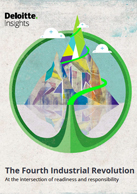
The Fourth Industrial Revolution
Deloitte Global’s third annual survey of more than 2,000 C-suite executives across 19 countries, the intersection of readiness and responsibility was examined to see how leaders are balancing the transition to Industry 4.0–xapitalizing on advanced technologies to help propel their businesses forwrad while acting in more socially responsible ways, particularly in the area of environmental stewardship.
Download PDF:
The Fourth Industrial Revolution
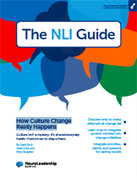
The NLI Guide – How Culture Change Really Happens
Leaders are constantly wondering how to create or strengthen their culture. So as part of its ongoing NLI Guide series, the NeuroLeadership Institute has released its latest white paper, “How Culture Change Really Happens.”
NLI’s approach to culture change starts with growth mindset. Leaders must help their employees understand that mistakes happen, and that failure is inevitable. What matters is whether people see those setbacks as reasons to give up, or to persist.
Once people start embracing challenges as opportunities, rather than as threats, NLI believes the next step is PHS: priorities, habits, and systems.
NLI defines culture as shared everyday habits. With a growth mindset and a focus on priorities, habits, and systems, leaders should have no trouble building the desired shared everyday habits in their own organization.
Download PDF:
The NLI Guide – How Culture Change Really Happens

Global Talent Trends 2019
Scenarios abound about the future of work and the implications for individuals, companies, and societies. Technological advances, government policies, and employee expectations are reshaping what we know as work, while the pace of change continues to accelerate. As artificial intelligence (AI) and automation infuse into everyday life, the opportunities for how people will work and live are significant. But how do we stay ahead? In this 2019 study, you may find some ideas around how to best focus on achieving an equitable, productive, and sustainable future for all.
Download PDF:
Global Talent Trends 2019

Unplug From the Past
As organizations evolve toward a platform economy and navigate an increasingly digital terrain, the importance of people skills is on the rise. This creates an opportunity for CHROs to take bold steps to foster reinvention. The IBM Institute for Business Value, in cooperation with University of Oxford Economics, interviewed 2,139 CHROs, we still have some room to evolve the role and skills gap to close! Here are some key insights.
Download PDF:
Unplug From the Past: Chief Human Resources Officer
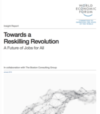
Reskilling Revolution
As the types of skills needed in the labour market change rapidly, individual workers will have to engage in life-long learning if they are to remain not just employable but are to achieve fulfilling and rewarding careers that allow them to maximize their employment opportunities. For companies, re-skilling and up-skilling strategies will be critical if they are to find the talent they need and to contribute to socially responsible approaches to the future of work. For policy-makers, re-skilling and retraining the existing workforce are essential levers to fuel future economic growth, enhance societal resilience in the face of technological change and pave the way for future-ready education systems for the next generation of workers.
This report attempts in providing organizations with some tangible ideas as to how they can map out job transition pathways and consider re-skilling opportunities, using the power of digital data to help guide workers, companies, and governments to prioritize their actions, time and investments.

Three Predictions for the Workplace Culture of the Future
The Fortune ‘100 Best Companies to Work For’ aren’t necessarily the biggest, wealthiest or most famous. They represent a wide range of sizes, locations and industries.
What they do have in common though is three-folds: Fairness (across all), care (for all employees), and, a deep sense of purpose. And their revenue growth is three times (3X) of those companies in the bottom quartile.
This report outlines how as we move into the age of experience in business, offering a ‘human’ experience inside our organizations not only matters, it becomes THE differentiator.
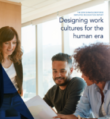
Designing Work Cultures for the Human Era
HR as a profession is undergoing a profound shift. Once solely focused on how to manage people as disposable resources, the human era is energizing HR leaders to be the culture keepers of their organizations. Every aspect of a company’s culture – from how employees are recognized and developed to how life events are celebrated – is being reimagined to drive greater business impact and bring more humanity to everyone’s experience at work.
Globoforce® conducts an annual survey in collaboration with the Society for Human Resource Management (SHRM) to elicit trends and insight from HR leaders and practitioners about their top workforce challenges and strategies to help address them.
This 2018 report examines best practices in employee recognition; the impact of recognition on organizational outcomes; trends in employee growth and development; and how to celebrate the whole human at work.
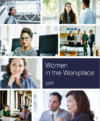
Women in the Workplace 2017
Women remain underrepresented at every level in corporate America, despite earning more college degrees than men for thirty years and counting. There is a pressing need to do more, and most organizations realize this: company commitment to gender diversity is at an all-time high for the third year in a row.
In this joint study by LeanIn.Org and McKinsey & Co., data is reflected from input on 222 companies employing more than 12 million people. To our knowledge, that makes this the largest study of its kind. Eye opening insights!
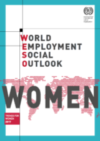
World Employment Social Outlook
The latest edition of the “World Employment and Social Outlook” by International Labor Organization provides figures and analysis on women in the labour market, including the huge economic benefits that could be made by closing gender gaps. Closing the gender gap by just 25% would add $5.8 trillion to the global economy. You may download the full report below.

Advancing Women in Tech-Intensive Industries
The non-inclusive environments impact women across all organizations, both in technical and business roles. The Catalyst’s report High Potentials in Tech- Intensive Industries: The Gender Divide in Business Roles shows that women in industries such as high tech, oil and gas, and chemical and energy are more likely than men to start at lower levels, report feeling like an outsider in the workplace, lack female role models, experience vague evaluation criteria, and leave to join organizations outside tech-intensive industries. Even in high- growth and dynamic economies such as India, despite a promising equal start in their first jobs in which they have equally high aspirations and comparable salaries, women in tech-intensive industries soon trail men in terms of earnings and development opportunities.
This toolkit is designed for HR and business leaders who want to take the next step in transforming their organizations in terms of gender disparity and in creating a truly inclusive environment.
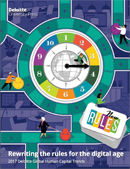
Global Human Capital Trends 2017
Deloitte’s Human Capital professionals leverage research, analytics, and industry insights to help design and execute the HR, talent, leadership, organization, and change programs that enable business performance through people performance.
This year’s report takes stock of the challenges ahead for business and HR leaders in a dramatically changing digital, economic, demographic, and social landscape. In an age of disruption, business and HR leaders are being pressed to rewrite the rules for how they organize, recruit, develop, manage, and engage the 21st-century workforce.
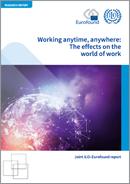
Telework: The Effects on the Work
New information and communications technologies (ICT) have revolutionised everyday work and life in the 21st century. They enable people to connect with friends and family – as well as with work colleagues and supervisors – at any point in time; however, they also facilitate the encroachment of paid work into the spaces and times normally reserved for personal life.
The uncoupling of paid work from traditional office spaces has been a crucial factor in this development. Today’s office work and, more broadly, knowledge work, is supported by the internet, and can be carried out from practically any location and at any time. This new spatial independence has transformed the role of technology in the work environment, offering both new opportunities and new challenges.
This report considers the impact of telework/ICT-mobile work (T/ICTM) on the world of work.

The Deloitte Millennial Survey 2017
Last year, many millennials seemed to be planning near-term exits from their employers. But, after 12 months of political and social upheaval, those ambitions have been tempered, according to Deloitte Global’s sixth annual Millennial Survey. Young professionals now indicate they’re less likely to leave the security of their jobs, more concerned about uncertainty arising from conflict, and—especially in developed countries—not optimistic about their future prospects nor the directions their countries are going. Check out the full report for more details!
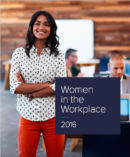
Women in the Workplace 2016
Women in the Workplace 2016 is a comprehensive study of the state of women in corporate America. The study is part of a long-term partnership between LeanIn.Org and McKinsey & Company to give companies the information they need to promote female leadership and foster gender equality in the workplace. You will find most recent and eye-opening statistics around how diversity can be a great success driver in organizations.
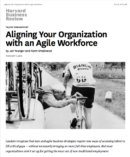
Aligning Your Organization with an Agile Workforce
Leaders recognize that lean and agile business strategies require new ways of accessing talent to fill critical gaps — without necessarily bringing on more full-time employees. But most organizations aren’t set up for getting the most out of non-traditional employment relationships. In this excerpt from their book, Agile Talent, Younger and Smallwood explain how to align your organization with the needs and expectations of a workforce that is increasingly external, project-based, and flexible.
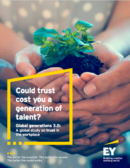
EY Global Study on Trust at Workplace 2016
Trust is a big word in today’s workplace. EY’s new global survey of full-time workers in eight countries reveals that less than half of global respondents have a “great deal of trust” in their employer, boss or team/colleagues. What does this mean? Could trust cost organizations a generation of talent? What are the right questions to ask? This summary provides a lot of good insights for thought.

9 Tips for Freelancers Negotiating New Assignments
The freelance revolution or gig economy is a fast-growing phenomenon. Just as organizational leaders have recognized their increased dependence on temporary external talent in tech and many other areas, a rapidly advancing number of professionals, including ourselves have chosen to pursue a career as agile talent.
For these professionals, negotiating a fair rate and relationship for their work is a critical competency but is not the only competency. This new article, featured in HBR, June 2016 edition, from Dr. Jonathan Younger summarizes all other considerations that will make a difference.
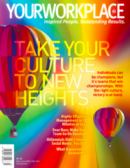
Take Your Culture to New Heights
‘Culture’ was selected the “word of the year” by Merriam Webster in 2014. Deloitte human capital trends for 2016 found that organization issues were the top HR issue. CEOs are finding that Peter Drucker’s now famous statement “culture eats strategy for lunch” is true. McKinsey’s growth business is organizational health — specifically their cultural assessment. Why is ‘culture’ so important and what can you do about it? You must read the attached article from Dr. Dave Ulrich, featured in Your Workplace, May/June 2016.
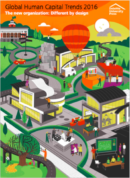
Global Human Capital Trends 2016
Deloitte’s Human Capital professionals leverage research, analytics, and industry insights to help design and execute the HR, talent, leadership, organization, and change programs that enable business performance through people performance. In this report, there is a deeper look into organizational design, design thinking and culture elements.


